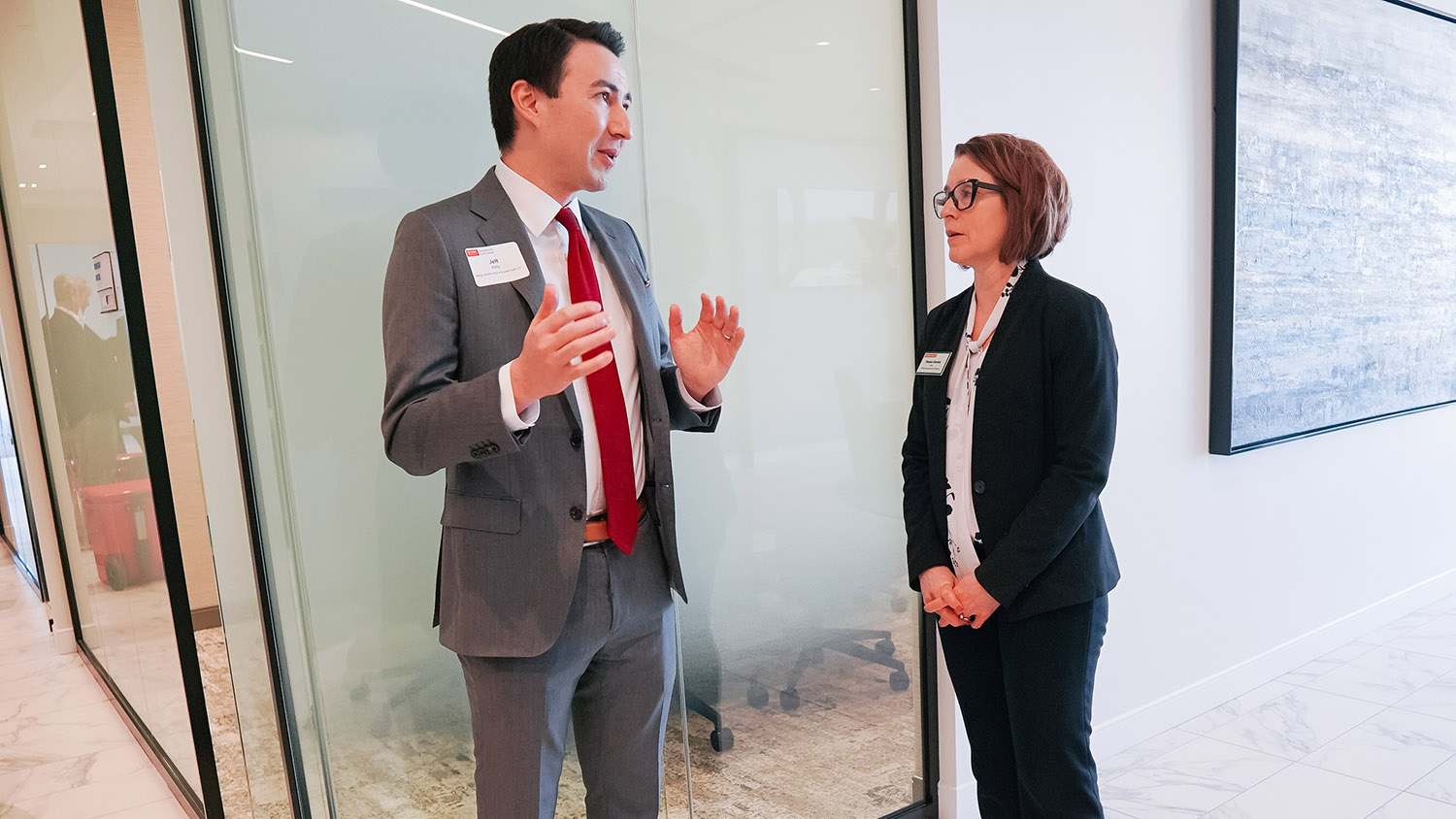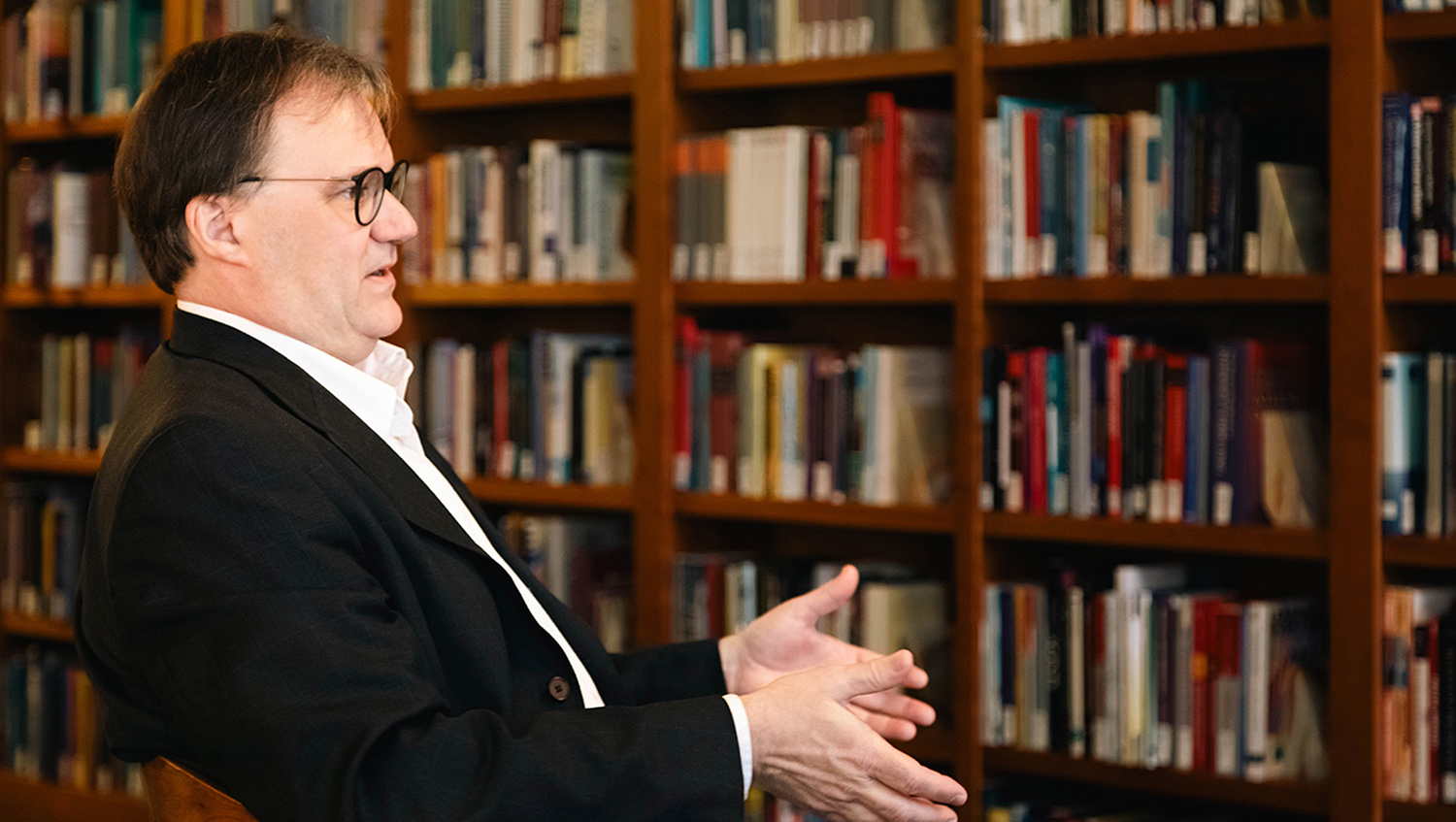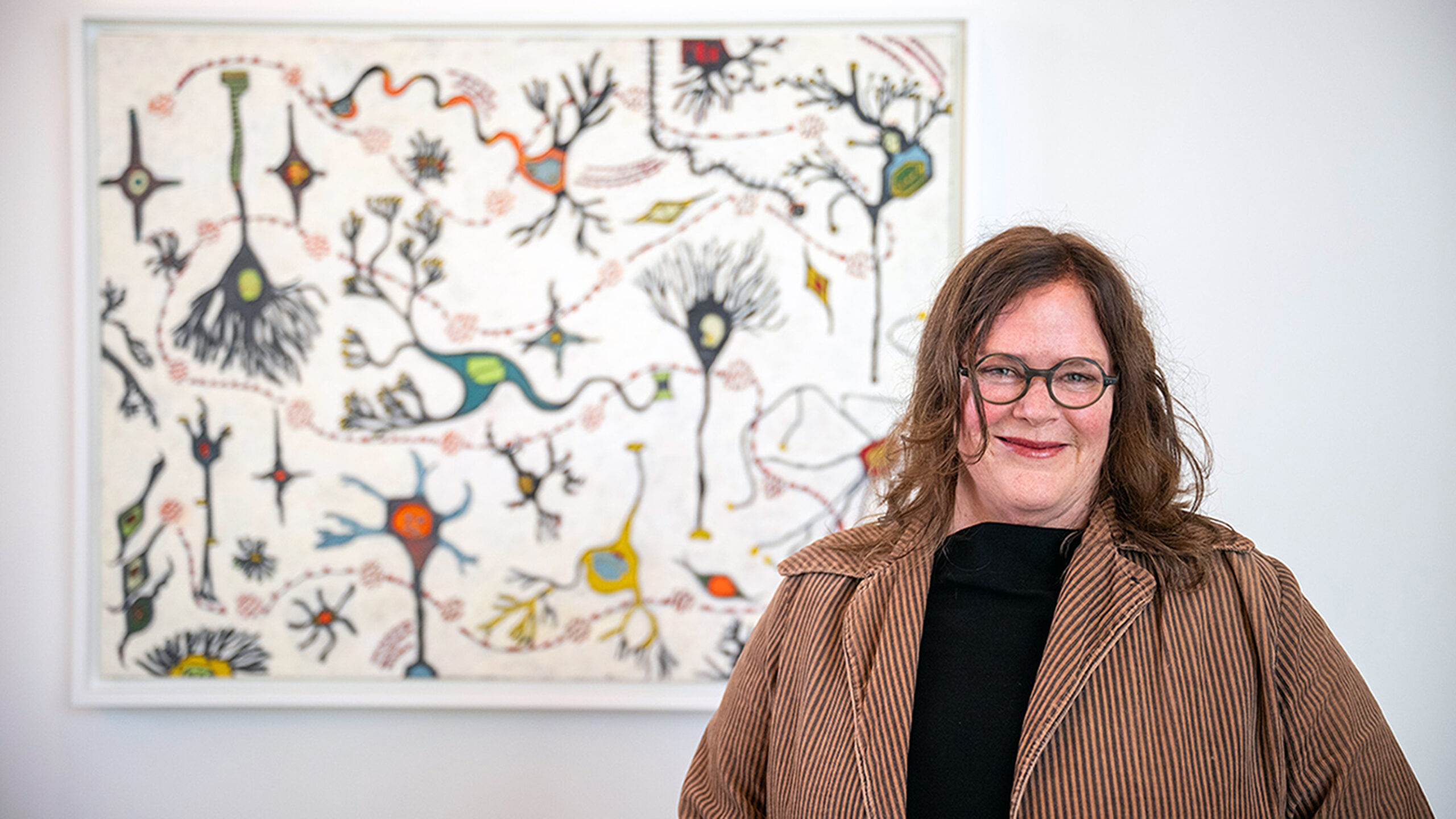The Power of Persuasion
How a CHASS degree prepares tomorrow’s legal professionals

Critical thinking, persuasive writing, interpreting complex ideas and understanding people are essential skills in the legal profession. Three NC State alumni illustrate how their humanities and social sciences degrees equipped them to succeed in law and help address some of today’s legal and societal challenges.
Jeff Kelly, a philosophy graduate and emerging technology lawyer, navigates the legal landscapes shaping the future of tech. Meredith Criner, a history and philosophy graduate and complex litigation associate, applies logic and legal analysis to advise clients. Starr Gibens, a communication and political science alumna, puts the skills she cultivated as an undergraduate to work at the University of Chicago Law School.
These are just a few examples of College of Humanities and Social Sciences (CHASS) graduates who have taken non-traditional paths to law school and the legal profession. Their diverse disciplines highlight the humanities and social sciences as a strong foundation for legal careers, empowering graduates to empathize, innovate and lead in today’s tech-driven world.
“Students pursuing a Bachelor of Arts or a Bachelor of Science degree in the humanities or social sciences are afforded a unique opportunity to develop critical thinking, analytical and communication skills, which are essential for careers in law,” said Carol Ann Lewald, the college’s assistant dean of undergraduate programs
The college also integrates law-related concentrations into various disciplines, connecting the humanities and social sciences with legal studies, and offering pathways for students to explore legal issues from a human-centered perspective.
Examples include history and the new legal studies concentration in the Department of History. “Both offer students an opportunity to hone the ability to evaluate evidence and trends, identify patterns, and understand the impact of past decisions on present-day issues, all of which are crucial for legal professions,” said Lewald.
History students, she added, develop skills in analyzing primary and secondary sources, which are directly applicable to legal research, helping them research, argue and interpret legal precedents.
“Students are afforded a unique opportunity to develop critical thinking, analytical and communication skills, which are essential for careers in law.”
Kelly, Criner and Gibens are leveraging their CHASS degrees to unlock personal and professional opportunities and make positive social change. Here, they share their stories.

Jeff Kelly has a vision: to work at the intersection of law and technology. Kelly, who also concentrates his legal practice on technology regulation and litigation, is a partner at Nelson and Mullins in Raleigh and a fellow at Duke University School of Law’s Center on Law and Technology.
Working in the evolving field of new and emerging technologies requires creative problem- solving, clear communication, collaboration and conflict resolution – skills Kelly honed while studying philosophy.
Kelly’s passion for philosophy influenced his career. He also grew up during the dot-com bubble and graduated high school when social media and Big Tech were just starting.
“I knew I needed to prepare for a changing world,” Kelly said. “I also recognized that critical thinking and disciplined study of ethics would be key.”
For Kelly, philosophy and law are equal partners. “Many of the ethical and policy problems of today – from the safety of autonomous vehicles and robotics to how we should think about intellectual property in an age of generative AI – are callbacks to the thought experiments and debates that were central to my classes at NC State,” he said, adding that philosophy teaches us to navigate ambiguity and make reasoned choices with limited information.
“Philosophy teaches us to navigate ambiguity and make reasoned choices with limited information.”
At NC State, Kelly focused his studies on the philosophy of law. Cross-department classes and seminars prepared him for interdisciplinary projects and highlighted the importance of bridging industries in modern business.
He advises students contemplating a career in law to prioritize their studies and learn from others in different fields.
“I doubt I would be as immersed in tech if I was not curious about what my roommates and friends studying engineering and computer science were learning, and with advances in technology, it has never been easier – or more important – to understand what other professions are doing,” Kelly said.

Meredith Criner has a vision: to assist businesses, trade associations, nonprofits and other clients with complex litigation matters in state and federal court. Criner is an associate in the Raleigh office of Lehotsky Keller Cohn LLP headquartered in Washington, D.C.
Criner credits her history and philosophy classes at NC State for shaping her career path.
“Most classes required regular papers or written exams, which sharpened my ability to think and write quickly under pressure,” said Criner. “I learned to organize my thoughts logically and support my conclusions with evidence. That translated directly to legal writing, where precision and persuasive reasoning are key.”
Her philosophy, law and ethics classes, she added “helped me start thinking like a lawyer.”
She said studying the humanities and social sciences taught her to analyze language, understand historical context, recognize a text’s tradition and question sources — skills vital in law, where careful reasoning and seeing multiple perspectives are essential.
“Like a humanities education, legal study shapes thoughtful, civic-minded individuals — something every republic needs.”
That background also gave her an advantage in law school, said Criner, who attended Duke University School of Law. In her first-year constitutional law class, she noted that many of her classmates struggled with the heavy reading and were unfamiliar with the Constitution’s historical and philosophical foundations. Criner’s understanding of these foundations helped her quickly grasp constitutional arguments and form counterarguments.
Her advice to CHASS students considering a law career?
“If law interests you, explore internships and connect with attorneys through friends, family or NC State alumni and read widely to ensure it is the right path,” Criner said. “Like a humanities education, legal study shapes thoughtful, civic-minded individuals — something every republic needs.”

Starr Gibens has a vision: to join a litigation practice at a private law firm in Chicago that aligns with her interests in defense and advocacy. Gibens is in her third year at the University of Chicago Law School.
Higher education is important to Gibens, a first-generation college student. She said her time at NC State shaped her into a great listener and learner and connected her with CHASS faculty members who influenced her academic path.
Her CHASS majors also provided practical experience that directly prepared her for law school — from learning case law and the structure of the American legal system to exploring contemporary social issues.
Gibens said that many pursue law to solve problems and address social inequalities — but that’s impossible without first recognizing the issues, understanding their origins, and seeing how they’re interconnected. CHASS, she added, gave her the tools to do that and more.
“Any CHASS degree or path can be an asset to your legal career if it reflects your values and capacity to learn and grow.”
Additionally, her undergraduate research in social work continues to give her a unique edge and perspective. “I’ve frequently been the only person to raise awareness for how a legal decision or strategy will impact an individual’s family life and welfare based on their experiences of interpersonal trauma or poverty,“ Gibens said.
CHASS also honed her communication skills. “Storytelling is central to what lawyers do, whether in court, while attracting clients, or drafting documents,” she said. “This has made me a more effective lawyer.”
For today’s students, Gibens offers this advice: “Any CHASS degree or path can be an asset to your legal career if it reflects your values and capacity to learn and grow.”
- Categories:


